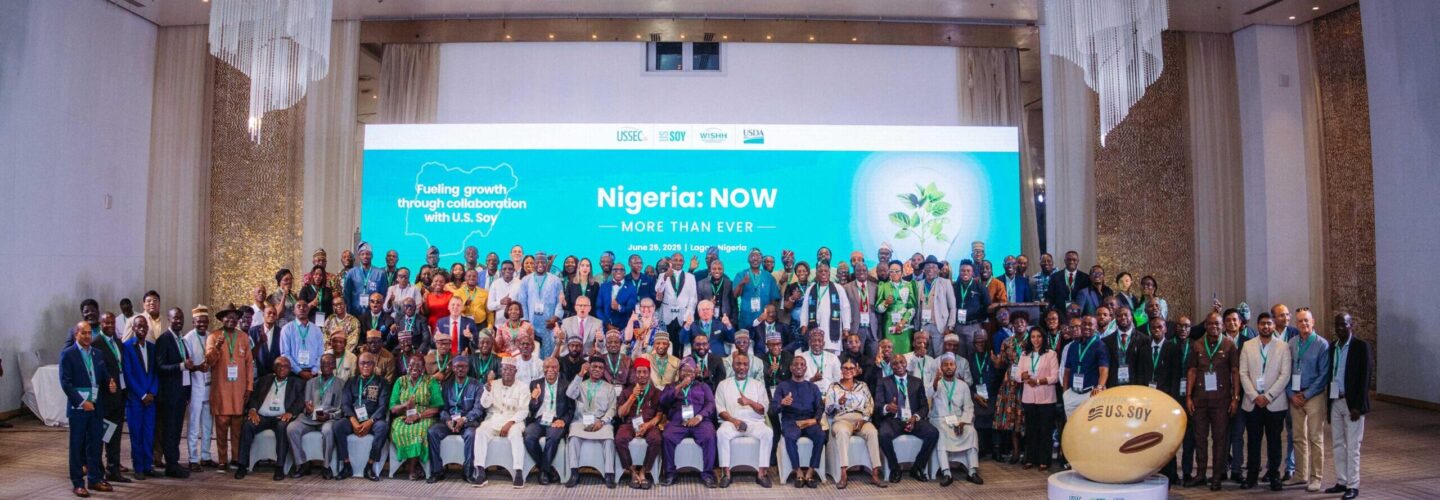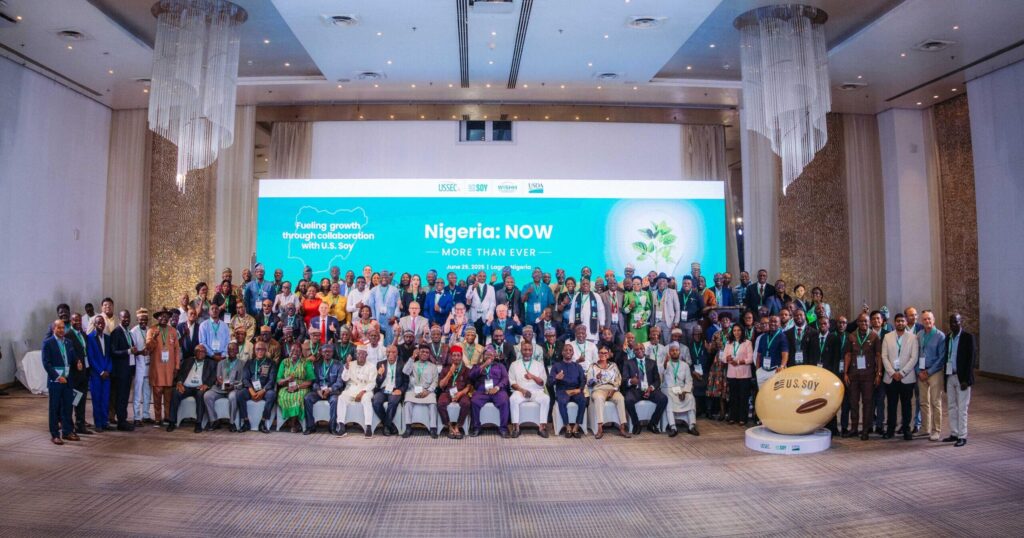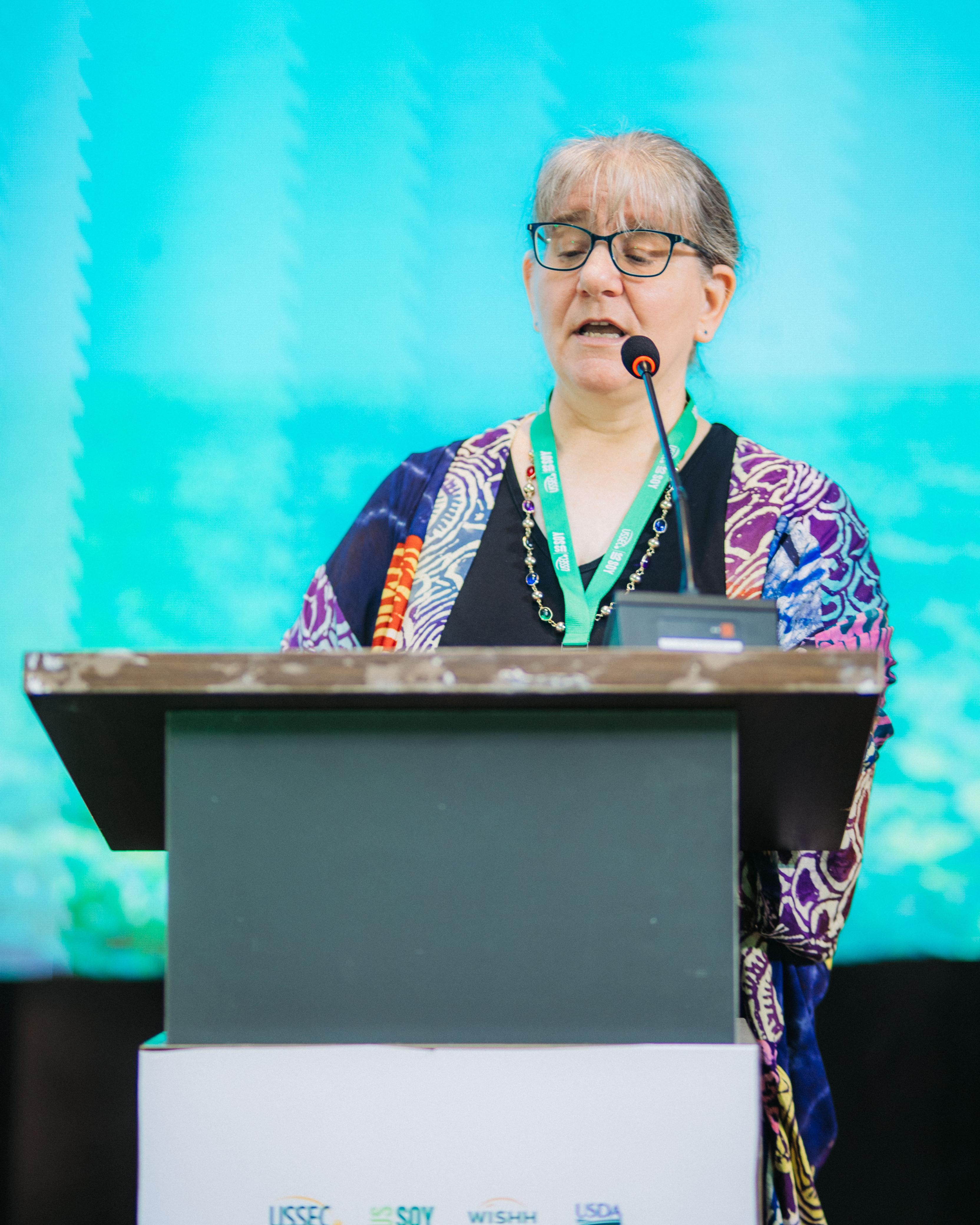
Corridors to Trade Can Support Nigeria’s Protein Needs
June 26, 2025, Lagos, Nigeria: The U.S. Soybean Export Council hosted its signature “Nigeria: NOW” conference in Lagos this week, bringing together stakeholders across the government and private sectors, including poultry producers, nutritionists and more. Participants dove into discussions about addressing Nigeria’s protein gap, trade and economic growth.

Speaking at the event, Acting U.S. Consul General, Lagos, Nigeria, JoEllen Gorg emphasized, “The U.S. Soybean Export Council’s Nigeria: NOW conference marks a pivotal milestone in creating a pathway for mutual prosperity and shared economic success. By addressing Nigeria’s protein gap, fostering innovation, and promoting best practices, the U.S. Soy industry is helping to build a resilient agricultural sector in Nigeria, ensuring long-term food security and economic stability.”
She added, “We are enthusiastic about the opportunities arising from the collaboration between USSEC and the U.S. Mission in Nigeria. This partnership is crucial in helping export-ready U.S. companies build business relationships with Nigerian agribusinesses, training Nigerians in new agricultural practices, and promoting the use of U.S. soy in Nigeria’s feed and food industries.”

Participation by high-level Nigerian stakeholders, including: former President, Chief Olusegun Obasanjo, Grand Commander of the Order of the Federal Republic; Engr. Seyi Makinde, Executive Governor of Oyo State; and Abisola Olusanya, Honorable Commissioner for Agriculture & Food System, Lagos State, emphasized the opportunity for greater collaboration between U.S. Soy and Nigeria.
With a population of over 236 million and growing, Nigeria’s protein consumption per capita remains low at only 45.4 grams per person per day compared to the FAO’s minimum recommended intake of 60 grams.[1] The global average is around 64 grams. While Nigeria grows soybeans domestically, demand significantly outpaces supply. The USDA Foreign Agricultural Service estimated Nigeria’s local production at around 1.15 million metric tons for the marketing year (MY) 2023/24, with the animal feed sector accounting for the majority of its use.[2]
As a result of the demand-supply mismatch this year, Nigeria imported 62,100 metric tons of soybeans from the U.S. after a pause of six years.[3] This renewed access offers a promising opportunity for deeper collaboration between U.S. Soy and Nigeria.
“Trade is vital to the global economy and, more importantly, to local economies,” added Jim Sutter, USSEC CEO. “U.S. Soy is at the forefront of collaborating with its partners as a reliable supplier.”
Robert Alpers, a generational U.S. Soy farmer and United Soybean Director, echoed this, “I’m proud to be playing my role in helping to feed the world sustainably. As U.S. Soy farmers, we are committed to ensuring we produce more using fewer resources and reducing our environmental footprint.”
By strengthening relationships, building trust, and leveraging comparative advantage, Nigeria and U.S. Soy can achieve mutually beneficial economic growth and a protein-secure future.
###
This press release is funded in part by the soy checkoff.
About the U.S. Soybean Export Council (USSEC):
The U.S. Soybean Export Council (USSEC) focuses on differentiating, elevating preference, and attaining market access for the use of U.S. Soy for human consumption, aquaculture, and livestock feed in 93 countries internationally. USSEC members represent the soy supply chain including U.S. Soy farmers, processors, commodity shippers, merchandisers, allied agribusinesses, and agricultural organizations. USSEC is funded by the soy checkoff, USDA Foreign Agricultural Service matching funds, and industry. Visit dev-ussec-migration.pantheonsite.io for the latest information and news about USSEC and U.S. Soy internationally.
Media Contacts:
- Hibah Ameer, USSEC South Asia and Sub-Saharan (SAASSA) Regional Head of Communications & Marketing, +92305 7779621, hameer@ct.dev-ussec-migration.pantheonsite.io
- Kerrey Kerr-Enskat, USSEC Director of Communications, +1-515-823-1848, kenskat@ussec.org
[1] Protein intake adequacy among Nigerian infants, children, adolescents and women and protein quality of commonly consumed foods